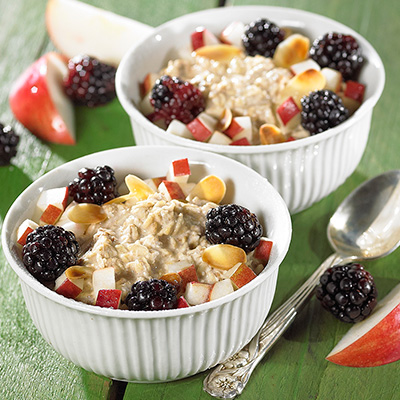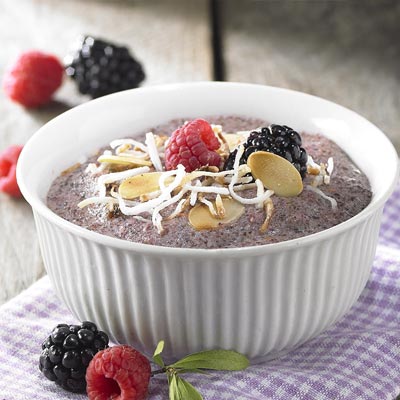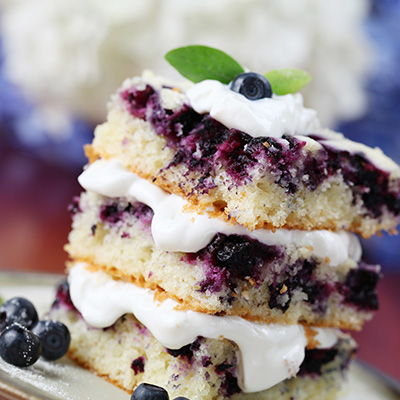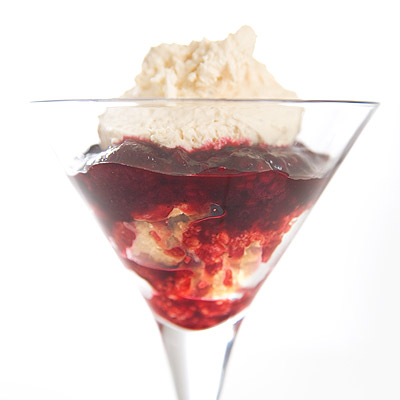- Strawberries
- Cook With Apples
- Grapes
- Grapefruit
- Lemons
- Cabbage
- Asparagus
- All About Bulb Vegetables
- All About Cruciferous Vegetables
- Squash
- All About Root Vegetables
- The Gift of Spice
- Thyme
- Basil
- Raspberries
- All About Tuber Vegetables
- Marjoram / Oregano
- Lemongrass / Citronella
- All Our Fruits, Vegetables and Fresh Herbs
- All About Exotic Fruits
- All About Legumes
- Cooking Pears: Three Inspirational Methods
Blackberries
All About Blackberries

The bramble on which the blackberry grows belongs to the same family as the raspberry bush and the strawberry plant. This bramble grows in gardens, fields and in the woods. Although the majority of blackberries grow in the wild, they can also be cultivated for large-scale consumption.
The blackberry that we know in North America, Europe and Australia is similar to the raspberry in that it is a cluster of tiny and juicy little fruits, or drupelets, attached to each other. Each of these drupelets contains a small seed called a drupe. In spite of their name, blackberries can be black, crimson red or yellowy-white.
Tips and Advice

- Choose firm and shiny blackberries. Discard those that are soft, dull or showing signs of mould.
- Like raspberries, blackberries are very fragile and cannot tolerate heat, transportation or over-handling. We recommend eating them as fresh as possible.
- Do not wash blackberries unless absolutely necessary and then do so quickly and just before use.
- In general, blackberries can be prepared the same way as raspberries.
- They can be used in salads, pies and cereal or to make marmalades, jellies, syrup or fruit brandy.
- To make a purée, or coulis, crush blackberries in a mixer and strain over a bowl to remove the small seeds.
Expert tip
Though blackberries are delicious plain, they can also be added to yogurt, ice cream or fresh cream.
Availability
Blackberries are available year-round in Metro supermarkets.
Nutritional value
Blackberries are a good source of vitamin C and potassium. They also provide magnesium and copper.
Storage
Because blackberries are highly perishable, they should not be left at room temperature or exposed to sunlight for any length of time. They will keep for a few days stored in the refrigerator.
To freeze blackberries individually, lay them on a cookie sheet and put in the freezer. Once solid, transfer the berries into a sealed freezer bag. Do not thaw completely before serving to preserve their natural shape.
















